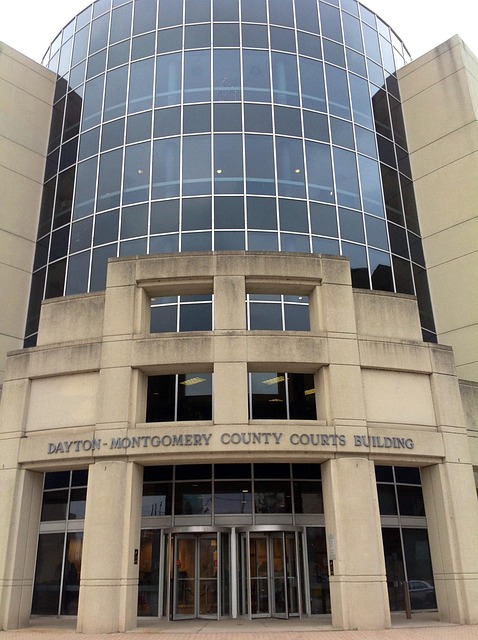Corporate Crime Investigations uncover complex schemes involving fraud, embezzlement, and illicit practices through advanced analytics, digital forensics, and stakeholder interviews. The goal is to build robust defenses against false accusations, protect business integrity, and ensure justice in high-stakes cases impacting businesses, philanthropy, and politics. Key strategies include gathering compelling evidence, developing humanizing narratives, leveraging experienced white-collar defense attorneys, and utilizing forensic accounting. Balancing swift justice with due process, including legal representation and charge notification, safeguards against baseless claims. Case studies demonstrate successful defenses through robust internal controls, comprehensive compliance programs, meticulous record-keeping, transparent reporting, and proactive legal counseling.
Corporate Crime Investigations delve into complex schemes, requiring meticulous navigation through legal labyrinths. This article explores key facets of uncovering financial misdeeds and building robust defenses against false accusations. We examine the critical role of forensic accounting in exposing wrongdoings, while emphasizing legal considerations and due process to ensure fairness. Through insightful case studies, we highlight successful defenses against high-profile corporate allegations, providing valuable insights for organizations facing scrutiny. Understanding these strategies is essential for building a defense against false accusations.
- Understanding Corporate Crime Investigations: Uncovering Complex Schemes
- Navigating False Accusations: Strategies for Building a Robust Defense
- The Role of Forensic Accounting in Exposing Financial Misdeeds
- Legal Considerations and Due Process: Ensuring Fairness in Investigations
- Case Studies: Successful Defense Against High-Profile Corporate Allegations
Understanding Corporate Crime Investigations: Uncovering Complex Schemes

Corporate Crime Investigations delve into the intricate web of business activities that may involve fraud, embezzlement, or other illicit practices. These investigations require a meticulous approach to uncover complex schemes that often span multiple jurisdictions and involve both financial and non-financial aspects. Understanding the nuances of corporate crime is crucial for building a defense against false accusations, especially in high-stakes cases that impact not just businesses but also the philanthropic and political communities.
By employing advanced analytics, digital forensics, and interviews with key stakeholders, investigators piece together evidence to reveal hidden transactions, altered records, and collusive behaviors. This process demands expertise in navigating labyrinthine corporate structures and understanding the motivations behind questionable actions. The goal is not only to avoid indictment but also to expose the truth, ensuring justice and maintaining integrity within the business world.
Navigating False Accusations: Strategies for Building a Robust Defense

Navigating False Accusations is a critical component of Corporate Crime Investigations, and building a robust defense strategy is paramount. When organizations face accusations, whether they are baseless or exaggerated, it’s essential to act swiftly. A well-prepared defense involves gathering compelling evidence that refutes the allegations and showcases the company’s ethical conduct. This includes documenting internal controls, compliance measures, and any efforts made to prevent criminal activities.
Experienced white collar defense attorneys play a pivotal role in guiding companies through these challenges. They help develop narratives that humanize the organization, emphasizing its contributions to society and past achievements. By presenting a strong case based on facts and legal precedents, they aim to discredit false accusations and protect the company’s reputation. This strategy is crucial for ensuring fair outcomes, especially during jury trials across the country, where perception can significantly impact the final verdict.
The Role of Forensic Accounting in Exposing Financial Misdeeds

Forensic accounting plays a pivotal role in uncovering financial misdeeds within corporations, serving as a powerful tool in corporate crime investigations. This specialized field involves the examination of an organization’s financial records, ledgers, and statements to identify any discrepancies, fraudulent activities, or illegal practices. By employing advanced analytical techniques, forensic accountants can navigate complex financial landscapes, revealing hidden truths that may have otherwise remained undiscovered.
In the event of suspected corporate crime, forensic accountants help build a robust defense against false accusations. They meticulously analyze financial data, provide crucial insights, and offer expert opinions that can either exonerate individuals or strengthen cases. Their work is instrumental in achieving extraordinary results, not only for legal proceedings but also for maintaining integrity within the philanthropic and political communities.
Legal Considerations and Due Process: Ensuring Fairness in Investigations

In corporate crime investigations, balancing the need for swift justice with the right to a fair trial is paramount. Legal considerations and due process are essential safeguards against false accusations and arbitrary decisions. The accused have the right to legal representation, to be informed of the charges, and to confront witnesses, ensuring their defense is robust and comprehensive. Lawyers specializing in white-collar defense play a crucial role in navigating these complex cases, which often span across the country, requiring a deep understanding of varying state laws.
By adhering to due process, the investigation maintains its integrity, allowing for the achievement of extraordinary results without compromising justice. This meticulous approach involves careful documentation, preservation of evidence, and adherence to legal protocols. It ensures that any accusations are based on solid ground, deterring baseless claims and protecting the rights of both the accused and the victims, fostering a more equitable and just system.
Case Studies: Successful Defense Against High-Profile Corporate Allegations

In the realm of corporate crime investigations, understanding building a defense against false accusations is paramount for protecting businesses and their reputations. Case studies offer valuable insights into successful defenses against high-profile allegations. For instance, prominent companies have navigated complex white collar defense scenarios by employing robust internal controls and comprehensive compliance programs. By implementing these measures, they demonstrated that strong corporate governance can significantly mitigate the risk of inaccurate accusations.
Across the country, various industries have employed general criminal defense strategies to counter false claims. These include meticulous record-keeping, transparent reporting structures, and proactive legal counseling. Such proactive approaches enable companies to address potential issues before they escalate into full-blown investigations. As a result, businesses can effectively navigating the complexities of corporate crime allegations and safeguard their interests.
Corporate crime investigations are intricate processes that demand expertise and strategic navigation. By understanding the nuances of uncovering complex schemes, defending against false accusations through robust strategies, leveraging forensic accounting for financial insights, adhering to legal due process, and learning from successful case studies, organizations can effectively build a defense against high-profile allegations. These comprehensive approaches ensure fairness, maintain integrity, and foster a culture of accountability within corporate structures.






